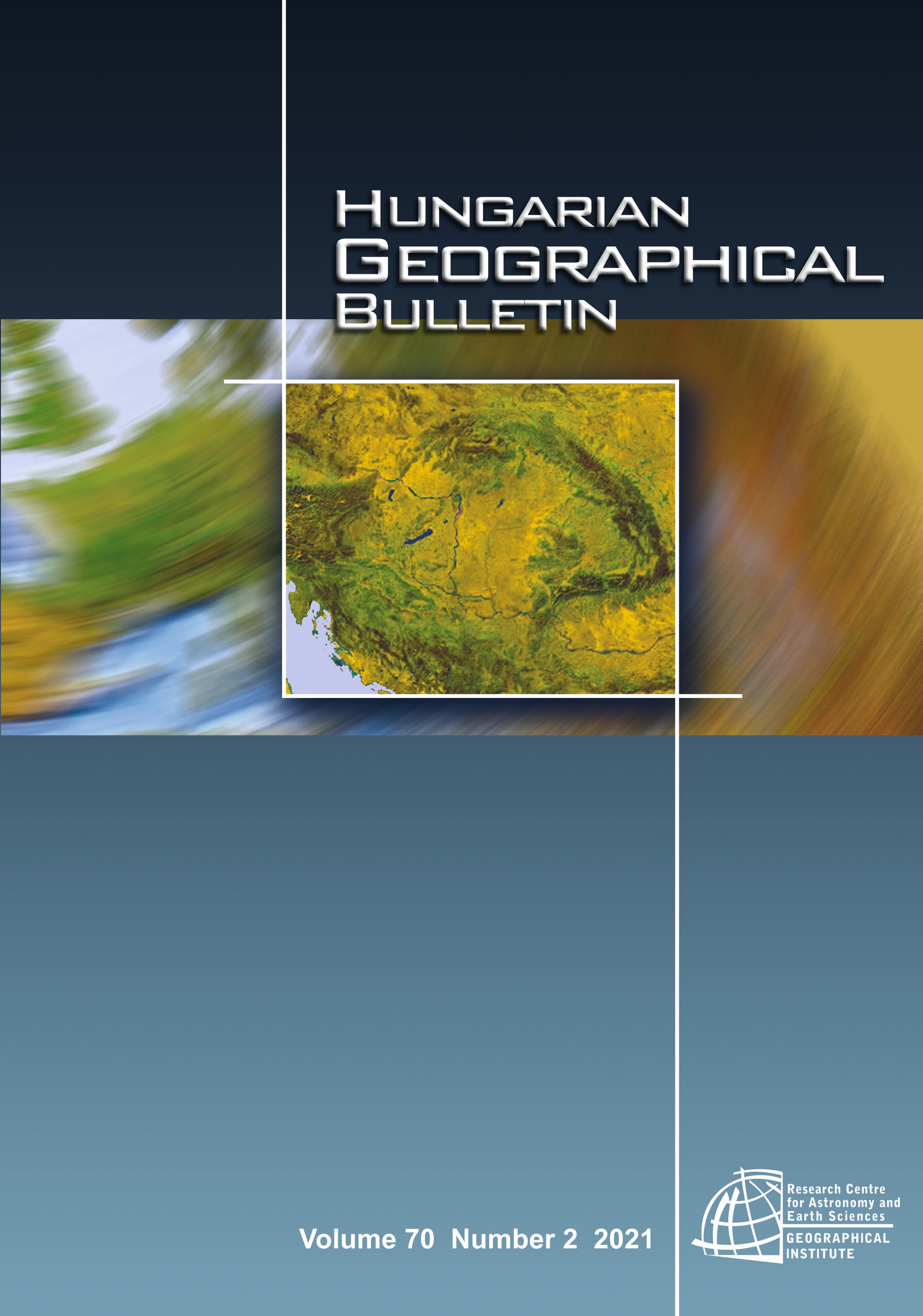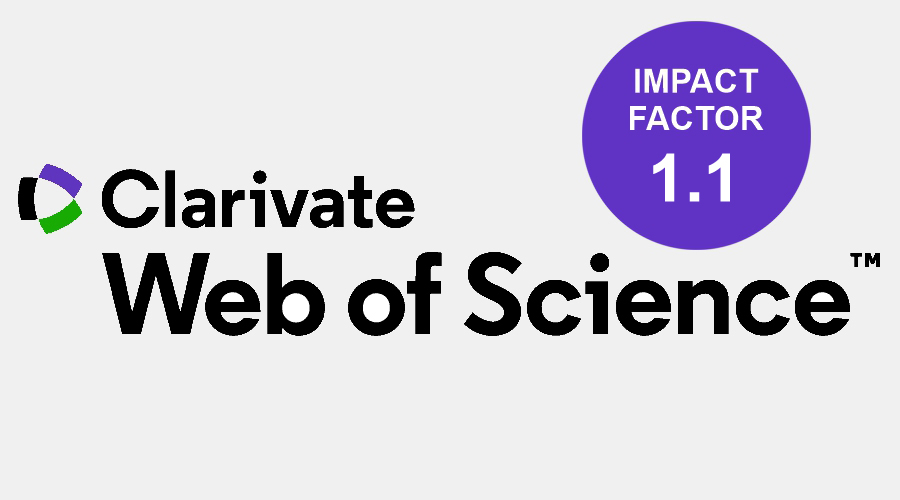Towards a multiscalar perspective on the prospects of ‘the actually existing smart village’ – a view from Hungary
Abstract
This paper aims at expanding the scope of the dominantly pragmatic, local scale-oriented smart village scholarship towards a perspective that recognizes that smart village development is a multiscalar political process. To show the necessity of this move, the shaping of smart village policies and practices in Hungary is examined through a qualitative lens. As the authors argue, path-dependent structural obstacles and interscalar relations undermine the prospects of smart village building in the sense of bottom-up integrated rural development, and there is a risk of a bias towards technological innovation. This exploratory article, using Hungary as a case study, argues that smart village scholarship should draw on the results of critical smart city scholarship to acquire in-depth understanding of current debates regarding potential smart village developments.
References
Adamowicz, M. and Zwolińska-Ligaj, M. 2020. The "smart village" as a way to achieve sustainable development in rural areas of Poland. Sustainability 12. (16): 1-28. https://doi.org/10.3390/su12166503
Augustyn, A.M. and Nemes, G. 2014. Catching up with the West? Europeanisation of rural policies in Hungary and Poland. Studies in Agricultural Economics 116. 114-121. https://doi.org/10.7896/j.1419
Bled Declaration for Smarter Rural Areas. Available at https://pametne-vasi.info/wp-content/uploads/2018/04/Bled-declaration-for-a-Smarter-Future-of-the-Rural-Areas-in-EU.pdf
Bosworth, G., Annibal, I., Carroll, R., Price, L., Sellick, J. and Shepherd, J. 2016. Empowering local action through neo-endogenous development. The case of LEADER in England. Sociologia Ruralis 56. (3): 427-449. https://doi.org/10.1111/soru.12089
Cowie, P., Townsend, L. and Salemink, K. 2020. Smart rural futures: Will rural areas be left behind in the 4th industrial revolution? Journal of Rural Studies 79. 169-176. https://doi.org/10.1016/j.jrurstud.2020.08.042
Csotó, M. and Herdon, M. 2008. Information technology in rural Hungary plans and reality. In Rural Futures: Dreams, Dilemmas and Dangers. Rural FuturesConference 08. 1-4 April 2008. University of Plymouth. Plymouth UK, University of Plymouth, 1-6.
ENRD 2018. EU Rural Review 26 'Smart Villages: Revitalising Rural Services.' Available at https://enrd.ec.europa.eu/sites/default/files/enrd_publications/publi-enrd-rr-26-2018-en.pdf
Észak-Hegyháti Mikrotérségi Unió, 2019. Okos Hegyhát Stratégia - Magyarország Okos Falu Térségi Pilot Programja (Smart Hegyhát Strategy - Smart Village Regional Pilot Programme of Hungary). Available at https://eszakhegyhatiunio.files.wordpress.com/2019/07/okos-hegyhc3a1t-stratc3a9gia_rc3a9szletes_fin.pdf
European Commission, 2010a. Europe 2020 Strategy Executive Summary. Available at https://ec.europa.eu/eu2020/pdf/COMPLET%20EN%20BARROSO%20%20%20007%20-%20Europe%202020%20-%20EN%20version.pdf
European Commission, 2010b. Communication from the commission to the European Parliament, The Council, The European Economic and Social Committee and the Commmittee of the Regions: Regional Policy contributing to smart growth in Europe 2020. Available at https://eur-lex.europa.eu/legal-content/EN/ALL/?uri=CELEX%3A52010DC0553
European Commission, 2010c. A Digital Agenda for Europe. Available at https://eur-lex.europa.eu/legal-content/EN/TXT/HTML/?uri=CELEX:52010DC0245R(01)&from=EN
European Commission, 2019. Pilot project: Smart Eco-Social Villages. Available at https://op.europa.eu/en/publication-detail/-/publication/9ff90911-a0c9-11ea-9d2d-01aa75ed71a1/language-en
European Parliament, ECORYS, 2019. Pilot Project: Smart Eco-Social Villages. Available at https://op.europa.eu/en/publication-detail/-/publication/9ff90911-a0c9-11ea-9d2d-01aa75ed71a1/language-en
Eurostat, 2018a. Statistics on Rural Areas in the EU. Available at https://ec.europa.eu/eurostat/statistics-explained/index.php?title=Statistics_on_rural_areas_in_the_EU&oldid=391832)
Eurostat, 2018b. Urban-Rural Typology. Available at https://ec.europa.eu/eurostat/statistics-explained/index.php?title=Glossary:Urban-rural_typology
Farkas, J.Zs. and Kovács, A.D. 2018. Kritikai észrevételek a magyar vidékfejlesztésről a vidékföldrajz szempontjából (Critical remarks on Hungarian rural development from the perspective of rural geography). Területi Statisztika 16. (1): 57-83.
Finta, I. 2015. A vidékfejlesztés lehetséges szerepe és átalakításának várható következményei a magyar fejlesztéspolitika 2014-2020-as időszakában (Possible role of the rural development and expectable consequences of its conversion in the Hungarian development policy during the period 2014-2020). Comitatus: Önkormányzati Szemle 25. (219): 112-126.
Gáspár, M. 2016. Csipkerózsika, ébredj! - avagy új kihívások előtt a közösségi hozzáférés (Sleeping Beauty, wake up! - or new challenges for public access). Információs Társadalom 16. (3): 113-133. https://doi.org/10.22503/inftars.XVI.2016.3.5
Gáspár, M. 2019. Az Okos Falu - egy másik falu (The Smart Village - it's another one). Új Magyar Közigazgatás 12. (3): 19-27.
Gkartzios, M. and Scott, M. 2014. Placing housing in rural development: Exogenous, endogenous and neo-endogenous approaches. Sociologia Ruralis 54. (3): 241-265. https://doi.org/10.1111/soru.12030
Gkartzios, M. and Lowe, P. 2019. Revisiting neo-endogenous rural development. In The Routledge Companion to Rural Planning. Eds.: Scott, M., Gallent, N. and Gkartzios, M., London, Routledge, 159-169. https://doi.org/10.4324/9781315102375-17
Government of Hungary, 2014a. National Infocommunication Strategy 2014-2020. Available at https://joinup.ec.europa.eu/sites/default/files/document/2016-11/nis_en_clear.pdf
Government of Hungary, 2014b. New Hungary Rural Development Programme. Available at https://www.mvh.allamkincstar.gov.hu/documents/123932/0/NHRDP_20140516.pdf
Government of Hungary, 2017. Digital Welfare Programme 2.0. Available at https://digitalisjoletprogram.hu/files/58/f4/58f45e44c4ebd9e53f82f56d5f44c824.pdf
Government of Hungary, 2020. National Reform Programme of Hungary. Available at https://ec.europa.eu/info/sites/info/files/2020-european-semester-national-reform-programme-hungary_en.pdf
Greenfield, A. 2013. Against the Smart City. Urban Omnibus. New York, Architectural League of New York. Available at https://urbanomnibus.net/2013/10/against-the-smart-city/
Grossi, G. and Pianezzi, D. 2017. Utopia or neoliberal ideology? Cities 6. 79-85. https://doi.org/10.1016/j.cities.2017.07.012
Guzal-Dec, D. 2018. Intelligent development of the countryside - The concept of smart villages: Assumptions, possibilities, and implementation limitations. Economic and Regional Studies / Studia Ekonomiczne i Regionalne 11. (3): 32-49. https://doi.org/10.22004/ag.econ.291913
Haarstad, H. 2017. Constructing the sustainable city: examining the role of sustainability in the 'smart city' discourse. Journal of Environmental Policy and Planning 19. (4): 423-437. https://doi.org/10.1080/1523908X.2016.1245610
Hosseini, S., Frank, L., Fridgen, G. and Heger, S. 2018. Do not forget about smart towns how to bring customized digital innovation to rural areas. Business & Information Systems Engineering 60. (3): 243-257. https://doi.org/10.1007/s12599-018-0536-2
Joss, S., Sengers, F., Schraven, D., Caprotti, F. and Dayot, Y. 2019. The smart city as global discourse: Storylines and critical junctures across 27 cities. Journal of Urban Technology, 26. (1): 3-34. https://doi.org/10.1080/10630732.2018.1558387
Káposzta, J. and Honvári, P. 2019. A smart falu koncepciójának főbb összefüggései és kapcsolódása a hazai vidékgazdaság fejlesztési stratégiájához (The concept of smart villages and a rural home development strategy). Tér és Társadalom 33. (1): 83-97. https://doi.org/10.17649/TET.33.1.3091
Karvonen, A., Cugurullo, F. and Caprotti, F. (eds.) 2018. Inside Smart Cities: Place, Politics and Urban Innovation. London, Routledge. https://doi.org/10.4324/9781351166201
Kitchin, R. 2014. The real-time city? Big data and smart urbanism. GeoJournal, 79. 1-14. https://doi.org/10.1007/s10708-013-9516-8
Kitchin, R. 2015. Making sense of smart cities: Addressing present shortcomings. Cambridge Journal of Regions Economy and Society 8. (1): 131-136. https://doi.org/10.1093/cjres/rsu027
Komorowski, L. and Stanny, M. 2020. Smart villages: Where can they happen? Land 9. (5): 1-18. https://doi.org/10.3390/land9050151
Kondor, A. Cs. 2010. The effect of the norms on the socio-economic spatial processes and the possibilities of the regional regulation in Hungary. PhD thesis. Budapest, Eötvös Loránd University.
Kovács, G. 2001. Telecottages in Hungary. Journal of Computing and Information Technology 2. 153-160. https://doi.org/10.2498/cit.2001.02.06
Lontai-Szilágyi, Zs., Bertalan-Balázs, B., Zsiros, B., Vasvári, M., Kumar, S.S., Nilanchal,P., Martonné Erdős, K. and Szabó, Sz. 2019. A novel approach of mapping landscape aesthetic value and its validation with rural tourism data. Hungarian Geographical Bulletin 68. (3): 283-301. https://doi.org/10.15201/hungeobull.68.3.6
Massey, D. 2005. For Space. London, Sage.
Ministry for Innovation and Technology and Ministry of the Interior, 2020. National Digitalisation Strategy.Available at https://2015-2019.kormany.hu/download/f/58/d1000/NDS.pdf
Naldi, L., Nilsson, P., Westlund, H. and Wixe, S. 2015. What is smart rural development? Journal of Rural Studies 40. 90-101. https://doi.org/10.1016/j.jrurstud.2015.06.006
Nemes, G. and Magócs, K. 2020. Közösségi alapú vidékfejlesztés Magyarországon - A LEADERintézkedés eredményei a 2014-2020-as tervezési időszak félidejében (Community-based rural development in Hungary - Program level impacts of LEADER in the mid-term of the 2014-2020 planning period). Gazdálkodás 64. (5): 416-434.
Novotny, L., Hruska, V., Egedy, T. and Mazur, M. 2015. Defining rural areas of Visegrad countries. Studia Obszarów Wiejskich 39. 21-34. https://doi.org/10.7163/SOW.39.2
Pálné Kovács, I. 2019. A magyar önkormányzatok korlátai a helyi gazdaságfejlesztésben (Limits of Hungarian local governments in the local economic development). Tér és Társadalom 33. (2): 3-19. https://doi.org/10.17649/TET.33.2.3088
Patkós, Cs. 2019. Bottom-up rural development movements to support the industrial revolution 4.0 in agro-industry. In Proceeding the 4th International Conference on Green Agro-Industry. Ed.: Setyaningrum, T., Yogyakarta, ICGAI, 11-21.
Pe'er, G., Bonn, A., Bruelheide, H., Dieker, P., Eisenhauer, N., Feindt, P.H., Hagedorn, G., Hansjürgens, B., Herzon, I. and Lomba, Â. 2020. Action needed for the EU Common Agricultural Policy to address sustainability challenges. People and Nature 2. (2): 305-316. https://doi.org/10.1002/pan3.10080
Pelse, M. and Lescevica, M. 2016. Smart specialisation assessment in Latvia. In Proceedings of the 2016 International Conference "Economic Science for Rural Development" No 42. 21-22 April 2016, Jelgava, Ed.-in-chief: Auzina, A., Jelgava, LLU ESAF, 126-131.
Philip, L. and Williams, F. 2019. Healthy ageing in smart villages? Observations from the field. European Countryside 11. (4): 616-633. https://doi.org/10.2478/euco-2019-0034
Prause, G. and Boevsky, I. 2015. Smart rural development. Agricultural Economics and Management 60. (4): 63-69.
Rosa Pires da, A., Pertoldi, M., Edwards, J. and Hegyi, F.B. 2014. Smart Specialisation and Innovation in Rural Areas. S3 Policy Brief Series No. 09. Seville, Spain, Joint Research Centre - Institute for Prospective Technological Studies.
Shelton, T., Zook, M. and Wiig, A. 2015. The 'actually existing smart city'. Cambridge Journal of Regions, Economy and Society 8. (1): 13-25. https://doi.org/10.1093/cjres/rsu026
Shucksmith, M. 2010. Disintegrated rural development? Neo-endogenous rural development, planning and place-shaping in diffused power contexts. Sociologia Ruralis 50. (1): 1-14. https://doi.org/10.1111/j.1467-9523.2009.00497.x
Šipilova, V., Ostrovska, I., Jermolajeva, E., Aleksejeva, L. and Olehnovics, D. 2017. Evaluation of sustainable development in rural territories in Latgale Region (Latvia) by using the conception of smart specialization. Journal of Teacher Education for Sustainability 19. (1): 82-105. https://doi.org/10.1515/jtes-2017-0006
Smigiel, C. 2018. Urban political strategies in times of crisis: A multi-scalar perspective on smart cities in Italy. European Urban and Regional Studies 26. (4): 336-348. https://doi.org/10.1177/0969776418792049
Söderström, O., Paasche, T. and Klauser, F. 2014. Smart cities as corporate storytelling. City 18. (3): 307-320. https://doi.org/10.1080/13604813.2014.906716
Spicer, Z., Goodman, N. and Olmstead, N. 2019. The frontier of digital opportunity: Smart city implementation in small, rural and remote communities in Canada. Urban Studies 58. (3): 535-558. https://doi.org/10.1177/0042098019863666
Torre, A., Corsi, S., Steiner, M., Wallet, F. and Westlund, H. (eds.). 2020. Is There a Smart Development for Rural Areas? London, Routledge. https://doi.org/10.4324/9780429354670
Vaishar, A. and Šťastná, M. 2019. Smart village and sustainability. Southern Moravia case study. European Countryside 11. (4): 651-660. https://doi.org/10.2478/euco-2019-0036
Vanolo, A. 2014. Smartmentality: The smart city as disciplinary strategy. Urban Studies 51. 883-898. https://doi.org/10.1177/0042098013494427
Varró, K. 2019. Tracing the (hidden) spatialities of digital agendas: the case of 'Digital Hungary'. European Spatial Research and Policy 26. (2):135-150. https://doi.org/10.18778/1231-1952.26.2.07
Varró, K. and Bunders, D.J. 2020. Bringing back the national to the study of globally circulating policy ideas: 'Actually existing smart urbanism' in Hungary and the Netherlands. European Urban and Regional Studies 27. (3): 209-226. https://doi.org/10.1177/0969776419893731
Verrest, H. and Pfeffer, K. 2019. Elaborating the urbanism in smart urbanism: distilling relevant dimensions for a comprehensive analysis of smart city approaches. Information, Communication and Society 22. (9): 1328-1342. https://doi.org/10.1080/1369118X.2018.1424921
Visvizi, A. and Lytras, M.D. 2018. It's not a fad: Smart cities and smart villages research in European and global contexts. Sustainability 10. (8): 1-10. https://doi.org/10.3390/su10082727
Wiig, A. 2015. IBM's smart city as techno-utopian policy mobility. City 19. (2-3): 258-273. https://doi.org/10.1080/13604813.2015.1016275
Woods, M. 2007. Engaging the global countryside: globalization, hybridity and the reconstitution of rural place. Progress in Human Geography 31. (4): 485-507. https://doi.org/10.1177/0309132507079503
Zavratnik, V., Kos, A. and Stojmenova, E. 2018. Smart villages: Comprehensive review of initiatives and practices. Sustainability 10. (7): 1-14. https://doi.org/10.3390/su10072559
Zhang, X. and Zhang, Z. 2020. How do smart villages become a way to achieves sustainable development in rural areas? Smart village planning and practices in China. Sustainability 12. (24): 1-20. https://doi.org/10.3390/su122410510
Copyright (c) 2021 Ádám Szalai, Krisztina Varró, Szabolcs Fabula

This work is licensed under a Creative Commons Attribution-NonCommercial-NoDerivatives 4.0 International License.






